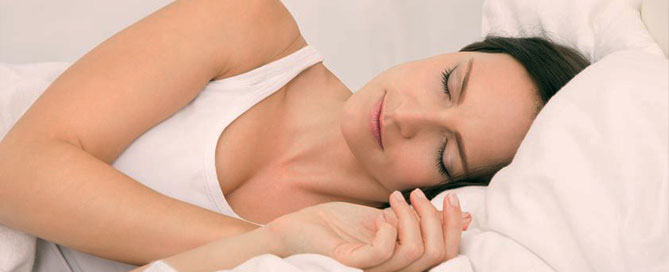
The Basics
According to the United States Department of Health and Human Services, approximately 64 million Americans suffer from insomnia. Insomnia can be trouble falling asleep, staying asleep or both. It is often associated with health conditions like stress, sleep apnea, chronic pain, hormonal imbalances, anxiety and depression.
Tools for people with Insomnia
- Go to bed consistently at the same time (best by 10 or 11 pm) and wake up around the same time every day.
- Make your bedroom a peaceful place and use your bed strictly for sleep or sex. Do not watch TV in bed or bring work in bed.
- Sleep in as much complete darkness as possible or use an eyemask. If you have electronic devices in your bedroom with small lights, put a piece of tape over them.
- Keep your bedroom temperature cool. Studies show that the best temperature for sleeping is pretty cool, 60-68 degrees. Set your bedroom thermostat below 70 degrees.
- Avoid substances that disturb sleep like alcohol, sugar and caffeine. These substances will interfere with your ability to sleep soundly.
- Try to resolve difficult emotions before going to bed. Chronic stress elevates cortisol levels and interferes with sleep. Try not to go to bed stressed, worried or upset. Journal if you find yourself list-making or mentally trying to work out a problem. Use deep breathing if you are having a hard time letting go of your stress or emotions.
- If you have any blood sugar issues, eat a high protein snack right before bed. During the night our blood sugar naturally drops, and this can be part of the reason for waking. A tablespoon of almond or peanut butter works well for regulating blood sugar levels and avoiding nighttime blood sugar crashes.
- Don’t do vigorous exercise after dinner. It can make it more difficult to fall asleep.
- Do relaxation exercises, deep breathing or meditation before bed.
- Check into whether your bed partner may be interfering with your sleep. If the answer is yes, consider sleeping in separate rooms. Or even better, suggest he or she get help to figure out the root cause of their sleep issues so you can rest better together.
- Practice a presleep ritual. Stop watching TV, checking emails, or using anything with a screen within an hour before bed. The lights on these devices can interfere with melatonin production up to 40% if used within an hour before bed.
- Create a presleep ritual. About 1-2 hours before you got to bed, turn off as many lights as possible. Do something quiet and relaxing like meditation (seated or lying), deep breathing, listening to peaceful music or reading.
Related News Articles:
British Acupuncture Council | Acupuncture & Insomnia
Acupuncture Today | Acupuncture Promotes Sleep in Insomnia Patients
More Acupuncture in the News

